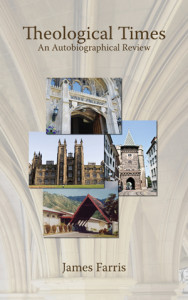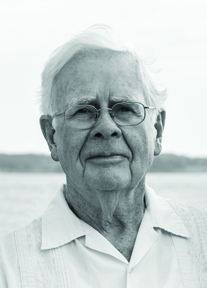 A philosophical reflection on the author’s engagement with modern theological scholarship.
A philosophical reflection on the author’s engagement with modern theological scholarship.
Debut author Farris, a retired professor of philosophy and religion, describes this slim volume as autobiographical, but the bulk of the treatment is scholarly or, as he says, “textual.” In other words, it’s autobiographical in the way Friedrich Nietzsche’s Ecce Homo is: a life told from the purview of its philosophical experiences. The book focuses on the author’s encounter with 19th- and 20th-century thinkers who radically changed the landscape of Christian theology. There are searching examinations of Karl Barth, Dietrich Bonhoeffer, Paul Ricoeur, Hans-Georg Gadamer, Soren Kierkegaard, and many others who contributed to the way Scripture is read and faith is conceived. A concern with the meanings of words and text and, by extension, religiously canonical literature forms the theoretical heart of the author’s disquisition. Contemporary understanding of a reader’s connection to both written material and the author’s intention has dramatically changed the way many interpret Christian doctrine. In some cases, that means a less than conservative reading that makes a hermeneutic concession to modernity; Farris provides a fascinating account of the Bible’s discussion of homosexuality along these lines. He also confronts iterations of textual literalism that dismissively reject science, like creationism. In other cases, he defends religious teaching as a tonic to the limitations of science to comprehend the full nuance of human life: “Methodologies of science have been fruitful in uncovering patterns of regularity in nature that empower human experiment and enterprise, but their recognition of uniqueness in natural happenings and human experience has been far less impressive.” One of the book’s most impressive features is a marvelously accessible introduction to Martin Heidegger’s challenging thought on language. At times, the study moves too quickly from one philosophical figure to another. More often than not, though, Farris’ effort is deep and clear—two virtues notoriously difficult to pair.
A thoughtful consideration of the way modern philosophy has influenced Christian theology.

